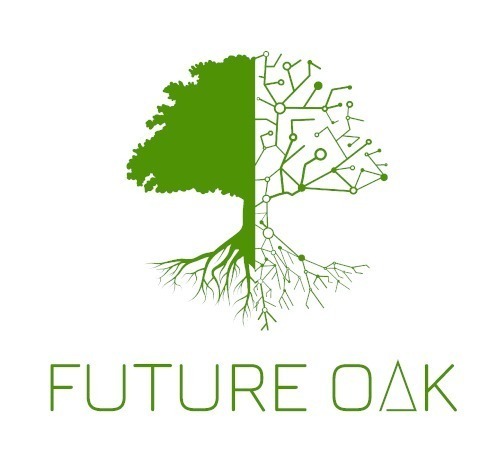A new research project is aiming to gain a better understanding of a serious threat to the health of our trees and a possible ‘cure’ in the form of a modified ‘oak microbiome’. If you own or manage oak trees, the researchers are keen to hear from you.
The project, known as Future Oak, is led by Bangor University, and I’m pleased to be involved in this fascinating research as a social scientist working with Sylva Foundation which is a partner in the project.
Acute Oak Decline (AOD) is a serious threat facing native oak trees in Britain. The threat is widespread in southern and central England, where about one-third of woodlands are affected. Symptoms of AOD include bleeding stems, necrotic lesions and larvae of the bark-boring beetle Agrilus biguttatus, and can result in tree death within five years of the first symptoms.
Previous work on AOD has revealed that these lesions are caused by a bacterial “pathobiome”, a collection of bacteria that together cause damage to oak trees. Trees in warmer or drier regions are more likely to suffer from AOD, with extreme environmental conditions, such as drought, weakening trees to the point they cannot fight off these pathogens. To control or halt the further spread of AOD, we need to develop an understanding of forest health that combines knowledge of these biological and environmental elements.
As well as pathogenic bacteria, oak trees play host to a vast array of microorganisms, known as the oak microbiota, many of which have strongly beneficial effects on tree health. For example, mycorrhizal fungi on the roots of trees provide trees with nutrients required for growth, and some bacteria found on leaves may protect trees from infection by preventing the growth of pathogenic bacteria. This collection of microorganisms, along with the ways they interact with each other and the conditions in which they occur, is known as the oak microbiome, and is the context in which these health benefits occur.
The aim of the FUTURE OAK project is to gain a better understanding of the identity of these microorganisms, what they do, and their role within the oak microbiome. An important component of Future Oak is also to engage with key stakeholders in oak woodlands, particularly woodland managers, in order to understand their attitudes towards and knowledge of microbiomes and their role in tree health. Sylva Foundation has just launched a new British Woodlands Survey.
If you own or manage trees and have a concern for tree health, please do take part in this important research. Visit sylva.org.uk/bws2021 The survey remains open until 11th July.


 This work is licensed under a Creative Commons Attribution- NonCommercial- NoDerivs 3.0 United States License.
This work is licensed under a Creative Commons Attribution- NonCommercial- NoDerivs 3.0 United States License.
